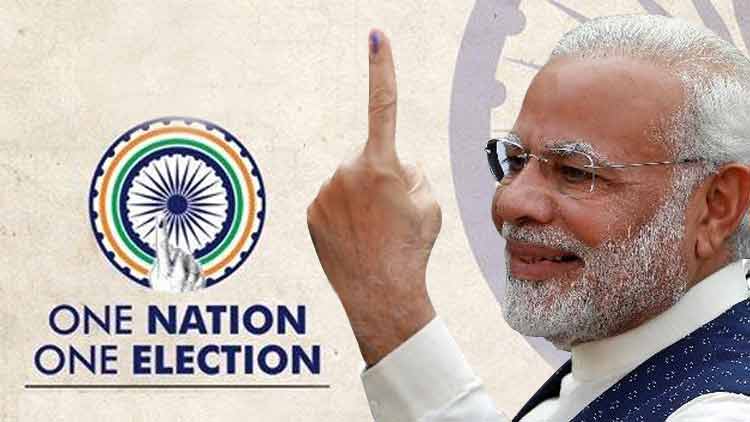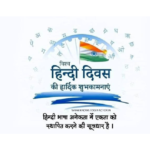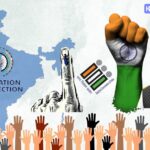The concept of “One Nation One Election” is being widely discussed in INDIA. Supporters of this idea consider it to be a significant reform, while opponents find it challenging. The primary aim of “One Nation One Election” is to make the electoral process more organized and time-bound than the current practice, benefiting the citizens. In this direction, a significant effort is being made to synchronize all elections – Lok Sabha, state assemblies, and panchayat-level elections – to be held simultaneously. This means that every five years, all elections would take place at the same time, leading to savings in time, money, and resources.

There are several advantages to this approach. For instance, candidates contesting elections will have less time for their electoral campaigns, which could shift the focus more towards their qualifications and capabilities. Additionally, election expenses would be reduced, and there could be improvements in the election management process. However, there are also arguments against this concept. It may not align with the diverse political agendas of different states, and the variations in the electoral processes of various states could pose challenges. Ultimately, the decision on “One Nation One Election” should be made with great caution to ensure that it is genuinely convenient and beneficial for the people of India. If successfully implemented, it could bring about a significant change in the country’s electoral process, leading to better governance for its citizens. One Nation One Election.
- Also Read :
- G20 Summit Full Article – Click Here
- One Nation One Election Hindi Article – Click Here
Followers of “One Nation One Election” believe that it may have some benefits-
- Time and Resource Savings: This will result in the simultaneous conduct of all elections, leading to savings in government resources. This will reduce the cost of conducting elections and save time.
- Administrative Simplification: It will make the electoral process more organized and streamlined than the current practice. Conducting all elections at the same time will also simplify the resolution of administrative issues.
- Improved Campaign Process: Candidates will have less time for their campaigns, encouraging them to work harder to convey their ideas to the people.
- Voter Participation: Through this, people will have the opportunity to participate in elections at regular intervals, leading to an increase in voter participation.
- Political Stability: Conducting elections at the same time will bring stability to the political landscape and reduce internal conflicts.
- Promotion of Education: Due to improvements in the electoral process, students will not need to close their schools, thereby minimizing the impact on their education.
Opponents of “One Nation One Election” believe that it may have some drawbacks:
- Lack of Awareness of State Perspectives: Understanding and giving priority to the different political agendas of India’s various states can be difficult when conducting elections all at once.
- Neglect of Issues: Because of simultaneous elections, some crucial issues may be overlooked, potentially rendering significant problems invisible to the public.
- Impact on Electoral Trends: Simultaneous elections may divert people’s attention away from electoral trends, making them select candidates based on their qualities.
- Supply of Time: Simultaneous elections could lead to a shortage of administrative time, potentially giving rise to unique challenges in the electoral process.
- Voter Fatigue: Participation in elections all at once may lead to voter fatigue, causing disengagement from the electoral process.
Opposition Party’s Perspective on “One Nation One Election”:
In the context of the proposal for “One Nation, One Election” in the Indian political landscape, the perspective of opposition parties can vary:

- Diversity of States: Opposition parties believe that it is crucial to be aware of the different election schedules based on various roles, languages, cultures, and issues in India’s diverse states. Therefore, conducting all elections at the same time may not be well-considered according to them.
- Fundamental Principles of Democracy: The opposition argues that India is a democracy, and its fundamental principles involve holding elections at regular intervals and making decisions based on the needs of the people. The proposal of “One Nation, One Election” does not align with these fundamental principles, as it may restrict the people’s free choice.
- Impact on Political Alliances: The opposition also suggests that the impact of political alliances could be affected by “One Nation, One Election,” potentially hindering their ideologies.
- Support for State Autonomy: Opposition parties support the autonomy of states from both economic and administrative perspectives, and this proposal may run counter to their stance by potentially weakening state leadership.
- Voice of Citizens: The opposition emphasizes the importance of thoroughly assessing this proposal and listening to the voices of citizens to ensure its successful implementation and accommodate the new changes effectively.
* In this way, opposition parties are viewing the “One Nation One Election” proposal from various perspectives and engaging in discussions about it.
Some important points from the government’s perspective regarding “One Nation One Election” are:
These points represent the government’s perspective on the “One Nation, One Election” concept, highlighting the potential advantages it sees in implementing this reform..

- Efficiency and Resource Optimization: The government argues that synchronizing elections at all levels will lead to efficient utilization of resources, reducing the burden on the exchequer and administrative machinery.
- Streamlined Administration: The government contends that conducting elections simultaneously will result in a more organized and streamlined administrative process, making it easier to manage and coordinate election-related activities.
- Reduction in Election Expenses: The government believes that holding elections at the same time will significantly reduce election expenses, making the process more cost-effective.
- Focus on Governance: The government suggests that frequent elections can disrupt the governance agenda, and aligning all elections can ensure that elected representatives spend more time on governance and less on campaigning.
- Promotion of Policy Continuity: The government emphasizes that simultaneous elections can lead to better policy continuity as governments won’t have to go into election mode frequently, allowing for more consistent policy implementation.
- Voter Convenience: The government asserts that holding elections together will make it more convenient for voters, as they won’t have to participate in elections at different times, reducing voter fatigue.
- Reduced Political Distractions: The government argues that aligning elections can reduce political distractions and internal conflicts, leading to a more stable political environment.
- Economic Benefits: The government suggests that the economic benefits of streamlined elections can positively impact the country’s overall financial health.
Conclusion on “One Nation One Election”
Providing a definitive and unequivocal response about “One Nation, One Election” is challenging because this issue involves multiple immediate and long-term considerations. Both proponents and opponents present their viewpoints. From a positive perspective, this proposal attempts to organize, simplify, and depoliticize the electoral process, which the government believes could save time and resources and potentially improve political stability.
However, from a negative standpoint, it can be understood that there may be some adverse consequences as well. The opposition argues that the diversity of states, including population, geography, and social context, necessitates a more flexible approach to election schedules. They believe that elections should be held periodically to respond to the unique needs of each state’s population. To ensure a meaningful and secure electoral process, the government will need to address the challenges without controversy. The “One Nation, One Election” proposal is part of a broader national discourse, and it should be carefully understood and implemented to ensure that it serves the best interests of the Indian people.
About Us
Knowledgefactor.in delivers fresh and compelling content that’s useful and informative for its readers. Knowledgefactor.in is a news and information site providing visitors with Breaking News, Tech News, Mobiles, Laptops, Auto, Gadgets, Telecom, Facebook, WhatsApp, Android, Windows, Programming and many more. Our prior aim is to update latest Tech News in people about Computer Science and Information Technology and we constantly develop our group of experts to accomplish the mission. Apart from this, we are also deep in researching over topics of Computer Science and Information Technology with our great members and inter-group seminars, meets and activities are arranged with time to explore Technology.




Pingback: एक देश एक चुनाव क्या है ? (One Nation One Election in Hindi) फायदे , नुकसान, एवं जरूरत. - Knowledge Factor
Very informative content
Pingback: 3 New Bill To Replace IPc, CrPc- Reforming of Criminal Laws in India - Knowledge Factor
Pingback: Top 10 Cricket Helmet 2023, Price with Descriptions - Knowledge Factor
Pingback: Amazon Republic Day Sale 2024: All You Need To Know ? -
Pingback: Discover Amritsar: History, Culture, and 20 Top Tourist Destinations - Knowledge Factor
Pingback: Global Warming in Hindi -ग्लोबल वार्मिंग : चुनौतियां, कारण और समाधान 2025 - Knowledge Factor
Pingback: Age Calculator Free HTML Code with CSS and Java Script 2025 - Knowledge Factor
Pingback: Flipkart Upcoming Sale 2025: All the Information About the Biggest Shopping Events of the Year - Knowledge Factor
Pingback: Uttarakhand Anganwadi Vacancy 2025 उत्तराखंड आंगनवाड़ी भर्ती | Online Form (6559 Vacancies) - Knowledge Factor
Pingback: SwaRail App Launched by Indian Railways: Features, Usage, and Benefits Explained - Knowledge Factor
Pingback: 24 BH Number Plate : Everything You Need - Knowledge Factor
Pingback: Mahuakhera Ganj: A Complete Overview - Knowledge Factor
Pingback: How to Increase Car Mileage: Tested Tips for Better Fuel Efficiency | Knowledge Factor
Pingback: "Key Achievements of G20 Summit Under India’s Presidency"
Pingback: iPhone 17 Launch : Full Details, Features, Models & Price | Knowledge Factor